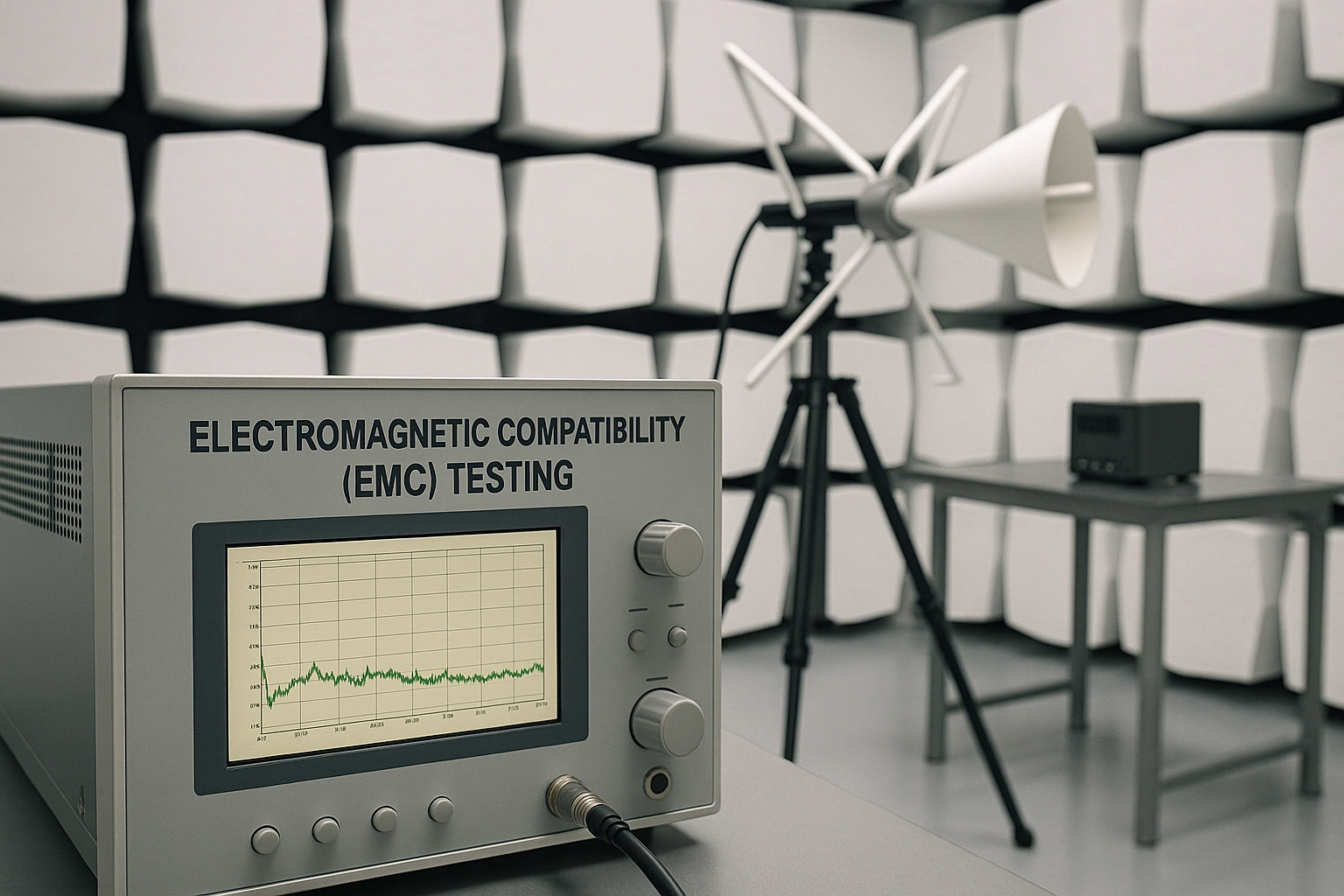IEC 62132-6 Magnetic Field Immunity Testing for ICs
The International Electrotechnical Commission (IEC) standard IEC 62132-6 is a critical tool for ensuring the electromagnetic compatibility (EMC) of integrated circuits (ICs). This standard specifies procedures and criteria to test the magnetic field immunity of electronic components, particularly those used in automotive electronics. Automotive ICs are exposed to various environmental conditions during their lifecycle, including harsh electromagnetic environments that can significantly impact device performance.
The testing protocol outlined in IEC 62132-6 is designed to simulate real-world scenarios where these devices might encounter magnetic fields of varying strengths and frequencies. By subjecting the ICs to controlled magnetic field exposures, this test ensures that the ICs can function correctly without any degradation in performance or failure due to external electromagnetic interference.
One of the key aspects of IEC 62132-6 is its focus on ensuring the robustness and reliability of automotive electronics. In vehicles, where millions of lines of code control various functions from braking systems to entertainment centers, any electromagnetic interference can lead to severe safety issues or operational failures. This makes magnetic field immunity testing a crucial step in the development process.
The standard is applicable not only to standalone ICs but also to multi-chip modules and system-on-chips (SoCs) integrated into automotive systems. By following IEC 62132-6, manufacturers can ensure that their products meet stringent quality standards set by international organizations like the Society of Automotive Engineers (SAE).
The testing process involves exposing the ICs to magnetic fields in controlled environments using specialized equipment designed to generate and measure the effects of these fields. The standard specifies the exact conditions under which tests should be conducted, including field strength, frequency range, and duration. Compliance with this standard is essential for manufacturers aiming to achieve certification from bodies like the United States Department of Transportation (DOT) or the European Union's New Type Approval procedure.
Failure to meet these standards can result in products being rejected during audits or not being approved for sale in certain markets, leading to significant financial losses and reputational damage. Therefore, investing in thorough EMC testing is crucial for maintaining a competitive edge in the global automotive market.
Why It Matters
The importance of magnetic field immunity testing cannot be overstated, especially within the context of automotive ICs. As vehicles become more reliant on advanced electronics to enhance safety and efficiency, it is imperative that these components can withstand the electromagnetic environments they will encounter during use.
EMC issues are not just technical challenges; they pose serious risks to vehicle performance and safety. For instance, a magnetic field-induced failure in critical control systems could lead to accidents or malfunctions that compromise driver safety. This is why regulatory bodies worldwide mandate compliance with standards like IEC 62132-6.
Furthermore, the automotive industry is highly regulated, and non-compliance can result in significant financial penalties and market exclusion. By adhering to these testing protocols, manufacturers ensure that their products meet not only local but also international safety and quality standards. This compliance enhances consumer trust and protects brand reputation, which are vital for long-term success.
From a broader perspective, ensuring the magnetic field immunity of automotive ICs contributes to reducing environmental impact. Vehicles equipped with robust EMC-compliant components can operate more efficiently, consuming less fuel or electricity while minimizing emissions. This aligns with global efforts towards sustainable transportation and greener technologies.
Quality and Reliability Assurance
The quality assurance process in automotive testing is multifaceted, involving various stages from initial design to final production. Magnetic field immunity testing plays a pivotal role at the early stages of product development by identifying potential weaknesses that could lead to failures under real-world conditions.
During the design phase, engineers use simulation tools and theoretical models to predict how different ICs will behave in various electromagnetic environments. However, these simulations are limited in their ability to capture all possible scenarios accurately. Therefore, magnetic field immunity testing provides a practical validation step that complements theoretical analysis.
The testing process involves several steps aimed at ensuring consistent quality and reliability. First, the ICs undergo thorough preparation, which includes cleaning, labeling, and arranging them on test boards according to specific protocols. Next, they are exposed to magnetic fields generated by specialized equipment, such as a magnetic field generator or a loop antenna.
During testing, engineers monitor various parameters like voltage levels, current consumption, and signal integrity using high-precision measurement instruments. These tools help in detecting any deviations from expected performance that could indicate susceptibility to electromagnetic interference. After the test, the ICs are thoroughly inspected for any signs of damage or degradation.
The data collected during testing is analyzed using statistical methods to determine if the tested IC meets the specified immunity levels outlined in IEC 62132-6. If a particular IC fails one or more tests, manufacturers can use this information to refine their design and manufacturing processes, leading to improved quality and reliability.
Use Cases and Application Examples
The application of IEC 62132-6 is wide-ranging across the automotive sector. Some notable use cases include:
- Tire Pressure Monitoring Systems (TPMS): TPMS sensors must function reliably even in strong magnetic fields generated by nearby vehicles or road infrastructure.
- Cruise Control Systems: These systems rely on precise electronic signals, which can be disrupted by external electromagnetic interference if not properly shielded and tested for magnetic field immunity.
- Electronic Stability Programs (ESP):





